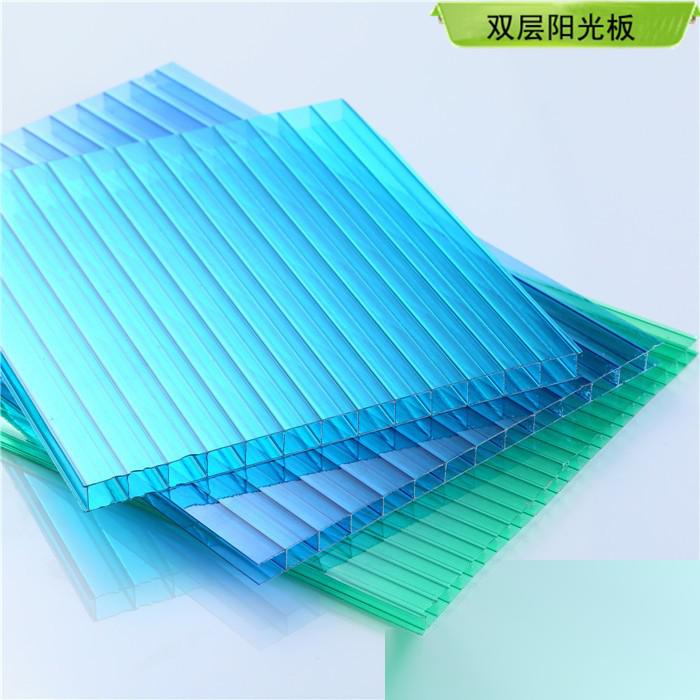Flame Retardancy
The self-ignition temperature of PC polycarbonate panels is 630℃ (compared to 220℃ for wood). Tests conducted by the National Fire Building Material Quality Supervision and Testing Center show that the flammability of PC panels meets GB (8624-1997 Class B1 flame retardant), classifying them as flame-retardant engineering materials. Chemical Corrosion Resistance: PC polycarbonate panels exhibit good chemical resistance, able to withstand various organic acids, inorganic acids, weak acids, vegetable oils, neutral salt solutions, aliphatic hydrocarbons, and alcohols at room temperature. Heat and Cold Resistance: PC polycarbonate panels have excellent temperature resistance, adapting to various harsh weather changes from extreme cold to high temperatures, maintaining stable physical performance indicators within the range of -40℃ to 120℃. Photochemical Properties: PC polycarbonate panels have high light transmittance in the visible light and near-infrared spectrum, with a transmittance rate ranging from 12% to 88%, depending on color. UV Resistance and Aging Resistance: The surface of PC polycarbonate panels contains a co-extruded layer that resists UV rays, providing excellent outdoor weather resistance and maintaining good optical and mechanical properties over long-term use. Impact Resistance: The impact strength of PC polycarbonate panels is 80 times that of glass, while solid panels are 200 times stronger, preventing breakage during transportation, installation, and use. Additionally, unlike common glass, polycarbonate panels do not shatter, significantly enhancing safety and minimizing injury risks. Lightweight: PC polycarbonate panels are lightweight, weighing 1/12 to 1/15 of the same thickness of glass, ensuring safety without breakage, easy handling, and installation, reducing the self-weight of buildings, simplifying structural design, and saving installation costs.
The flexibility and plasticity of PC polycarbonate panels make them ideal for installing domes and other curved surfaces, allowing for a bending radius of up to 175 times the thickness of the panel (bending radius 175 times thickness).
Evaluation: Flammability
The self-ignition temperature of PC polycarbonate panels is 630℃ (compared to 220℃ for wood). Tests conducted by the National Fire Building Material Quality Supervision and Testing Center show that PC panels meet GB (8624-1997 Class B1 flame retardant), classifying them as flame-retardant engineering materials.
Chemical Corrosion Resistance
PC polycarbonate panels exhibit good chemical resistance, able to withstand various organic acids, inorganic acids, weak acids, vegetable oils, neutral salt solutions, aliphatic hydrocarbons, and alcohols at room temperature.
Heat and Cold Resistance
PC polycarbonate panels have excellent temperature resistance, adapting to various harsh weather changes from extreme cold to high temperatures, maintaining stable physical performance indicators within the range of -40℃ to 120℃.
Photochemical Properties
PC polycarbonate panels have high light transmittance in the visible light and near-infrared spectrum, with a transmittance rate ranging from 12% to 88%, depending on color.
UV Resistance and Aging Resistance
The surface of PC polycarbonate panels contains a co-extruded layer that resists UV rays, providing excellent outdoor weather resistance and maintaining good optical and mechanical properties over long-term use.
Impact Resistance
The impact strength of PC polycarbonate panels is 80 times that of glass, while solid panels are 200 times stronger, preventing breakage during transportation, installation, and use. Additionally, unlike common glass, polycarbonate panels do not shatter, significantly enhancing safety and minimizing injury risks.
Lightweight
PC polycarbonate panels are lightweight, weighing 1/12 to 1/15 of the same thickness of glass, ensuring safety without breakage, easy handling, and installation, reducing the self-weight of buildings, simplifying structural design, and saving installation costs.
The flexibility and plasticity of PC polycarbonate panels make them ideal for installing domes and other curved surfaces, allowing for a bending radius of up to 175 times the thickness of the panel (bending radius 175 times thickness). For more information, please visit:
| http://www.xtpcban.com |













